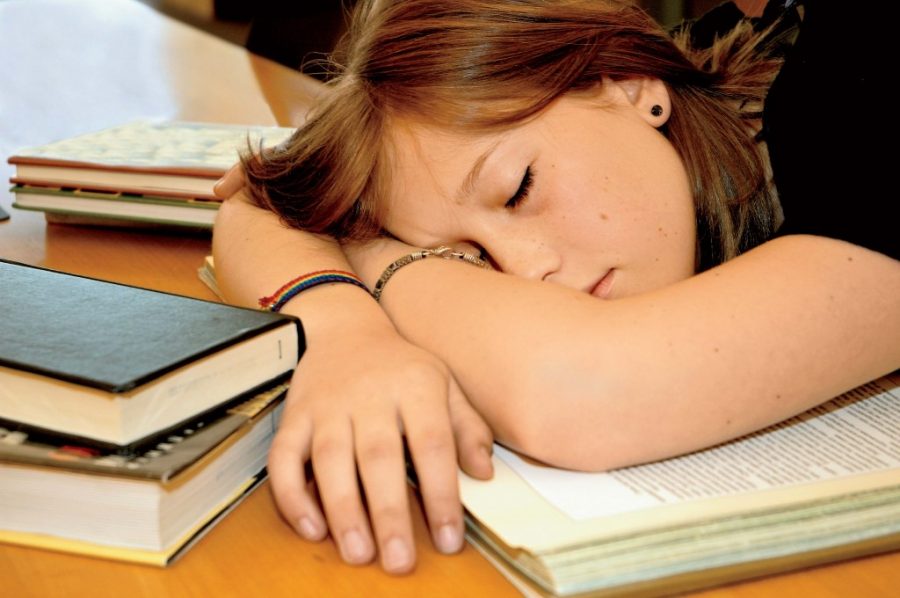For teenagers in school, getting the proper amount of sleep can be a challenge. Over the last decade, sleep deprivation has become an increasingly common problem among teens. Between doing piles of homework each night, practicing for extra curricular activities, and waking up at the crack of dawn the next morning just to repeat the process, it is no wonder why teens are not performing as well as they could.
Teenangers should not have to suffer from sleep deprivation at the expense of school. With academic demands, extracurricular activities, work, and homelife, teenagers are going nonstop until they absolutely can’t anymore. For teens that don’t get proper rest, it could lead to serious physical and mental health problems and learning/behavioral issues.
Schools need to take the health of their students into consideration and cut down on the amount of homework and hours of after-school activities. In addition, schools should move to a later start time to allow students to catch up on their rest.
Sleep deprivation causes a number of health problems. It is known to lead to obesity, memory loss, diabetes, and heart disease. In addition, sleep deprivation is also the leading cause of depression and anxiety among teens. The stress put on teenagers with academic demands causes them to stay up late into the night or into early morning hours to get everything done.
Learning and behavioral issues stem from sleep deprivation. Lack of sleep causes irritability and emotional instability in teenagers. When teenagers are tired, they have a hard time comprehending or focusing on what they are being taught and often have an attitude towards everyone. This causes students to turn in subpar work, perform badly on tests, become stand offish or impatient, and experience greater emotional distress.
There are solutions to this problem. Later start times in schools, less homework, a consistent sleep schedule, and a reduced amount of stress are just some of the ways that sleep deprivation can be prevented. Later start times would allow for teens to get an extra hour or two of shut-eye, which would help ease tiredness. Less homework would reduce stress and not cause the teen to stay up nearly as late. A consistent sleep schedule would also ensure that teens would get more sleep than what they are getting now.
Sleep deprivation has become a common issue among teenagers in high school. It is causing mental and physical health issues, learning problems, changes in behavior, and emotional instability. Sleep deprivation is not a normal part of being a teenager, but it shouldn’t be. It’s part of an invisible epidemic that schools need to start addressing.








